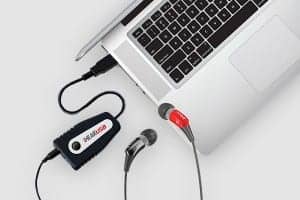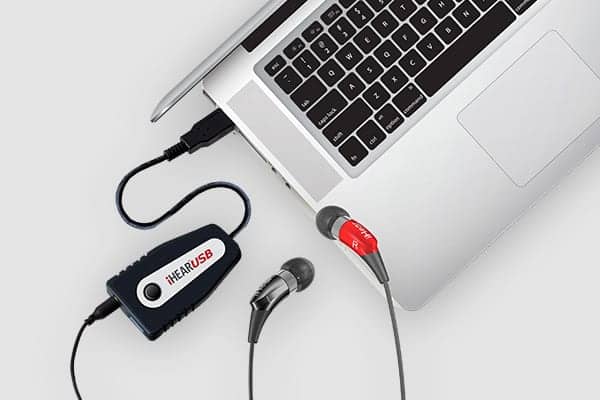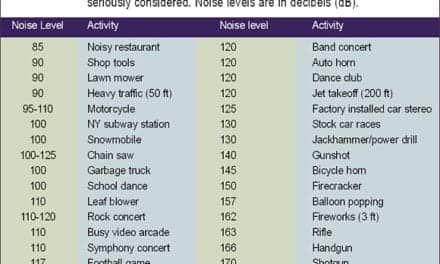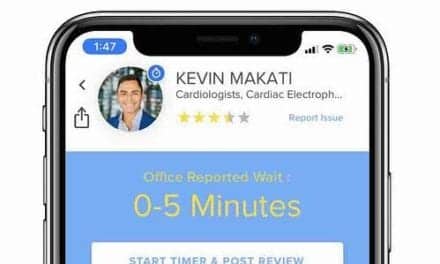iHear Medical has announced that it received FDA clearance for the iHearTest™, the first hearing test approved for over-the-counter (OTC) sales.

The company reports that its iHearTest and other hearing solutions developed by iHear Medical are in line with the disruptive technology that the President’s Council of Advisors on Science and Technology (PCAST) called for in an October 2015 letter to the President recommending automated online hearing tests made affordable and available to those with age-related, progressive, mild-to-moderate hearing loss.
“This landmark FDA approval will allow us to reach out to millions who suspect hearing loss, allowing them to conduct a basic hearing evaluation for themselves or their family members from the privacy and convenience of their home,” said Adnan Shennib, founder and CEO of iHear Medical.
The FDA approval of the iHearTest was based on extensive technological development and clinical research to demonstrate safety and efficacy, according to the company. An Institutional Review Board (IRB)-approved clinical study was conducted on 96 subjects with iHearTest results compared to WHO grading of hearing impairment using standard practice audiometry. The clinical study results showed 96.4% agreement with the WHO method using standard practice audiometry for the assessment of disabling hearing impairment. For the ordinal assessment of hearing ability, the iHearTest showed 85.9% level-by-level agreement and 100% agreement within ±1 level with respect to WHO grading using standard practice instruments.
While other manufacturers currently offer online and mobile apps for hearing tests, these tests are unregulated and reportedly do not comply with the accepted standards of audiometric evaluation. The reliance on uncalibrated headphones, speakers and sound cards can result in unpredictable test signals, which often produce inaccurate test results. iHear Medical reports that the FDA has previously intervened to remove unapproved hearing tests with unsubstantiated claims of accuracy.
The iHearTest kit includes a handheld USB device for connection to a personal computer and factory-calibrated earphones. The iHearTest software application is downloaded online and provides step-by-step instructions on how to administer the iHearTest. The iHearTest kit requires a standard personal computer running Microsoft Windows or Mac OS X. Test results are stored on a remote HIPAA-compliant server for review at any time by the consumer using secure online access. The iHearTest system also conducts periodic checks of earphone calibration to ensure continued test signal accuracy.
The company is careful to point out that the iHearTest is not intended as a diagnostic test to evaluate hearing health or treat ear disease. The test advises consumers to seek professional evaluation for any symptoms that may indicate a health issue.
The delay in basic assessment of hearing loss presents challenges for the hearing health system, which often deals with hearing loss at the severe stages, rather than early on during the mild and moderate stages. Because hearing loss is typically a gradual process developing slowly over decades, self assessment is often elusive with individuals exhibiting denial or assuming others “mumble” or are not speaking clearly. Psychological and other barriers prevent many from seeking professional evaluation early on, resulting in untreated loss and communication barriers. The lack of solutions available directly to consumers or through their primary care providers can result in a delay in basic hearing assessment and treatment of about 6-9 years, according to industry reports. iHear Medical states that while the vast majority of people with hearing loss can be successfully treated with hearing aids, less than 10% use them globally due to persisting barriers including high cost and lack of access to hearing assessment and treatment.
iHear Medical announces that it plans to retail its patented iHearTest kit for $49 USD which includes testing for two family members. To learn more about the iHearTest visit the iHear website.
iHear Medical plans to offer a range of web-based hearing solutions directly to consumers and through partnerships with leading insurance and professional distribution channels. Recently, the company announced partnerships with Ameritas, a US insurance provider, and AIER(???? ), a Beijing-based hearing solution provider.
iHear Medical is developing web-enabled hearing solutions and was founded by Adnan Shennib, who has started and led the development at several Silicon Valley firms, including InSound Medical, which was acquired by Sonova-Phonak in 2010.
Source: iHear Medical






Getting FDA clearance is not as easy as you think- “giving candy”. The test took years to develop and years to get FDA clearance and the approval process requires submission of IRB approved clinical studies to demonstrate efficacy and safety. The FDA reviewers typically include ENTs, audiologists and statisticians, who have the interest of the public in mind. Keep in mind that the test was designed and cleared as a screening tool, and not intended to diagnose hearing health, or to replace a hearing professional in any way. In fact it encourages consumers to seek professional help for a complete hearing evaluation.
Curious to know if you have any evidence that “it will harm more people than help”?
This is yet another gimmick to make money and further confuse the person undertaking such a ridiculous test.
There are many physiologic and biologic reasons why hearing may fluctuate, and ultimately lead to an irreversible and progressive hearing loss. These are the core factors that need investigation, when the impaired person seeks help. The best direction is to an ENT office/audiologist/hearing aid specialist who can vouch for the accuracy of findings and the test results. The FDA, we know is giving away approvals like candy, and is no longer the reliable organization for overseeing such scams.
This project will harm more people , than help them seek positive, professional and medical action.
Jay Muhury.
That the FDA is giving away approvals is just plain uninformed, if not silly. We have been knocking at that door with a valid product for some time and it is just not that easy. Also, the same critic seems unaware that there are some 15-20 million people in the US who would benefit from professional services, but are not sufficiently convinced the have a hearing loss to lead them to make that appointment. A cheap and valid screening test that they could take at home might convince them to seek needed services.